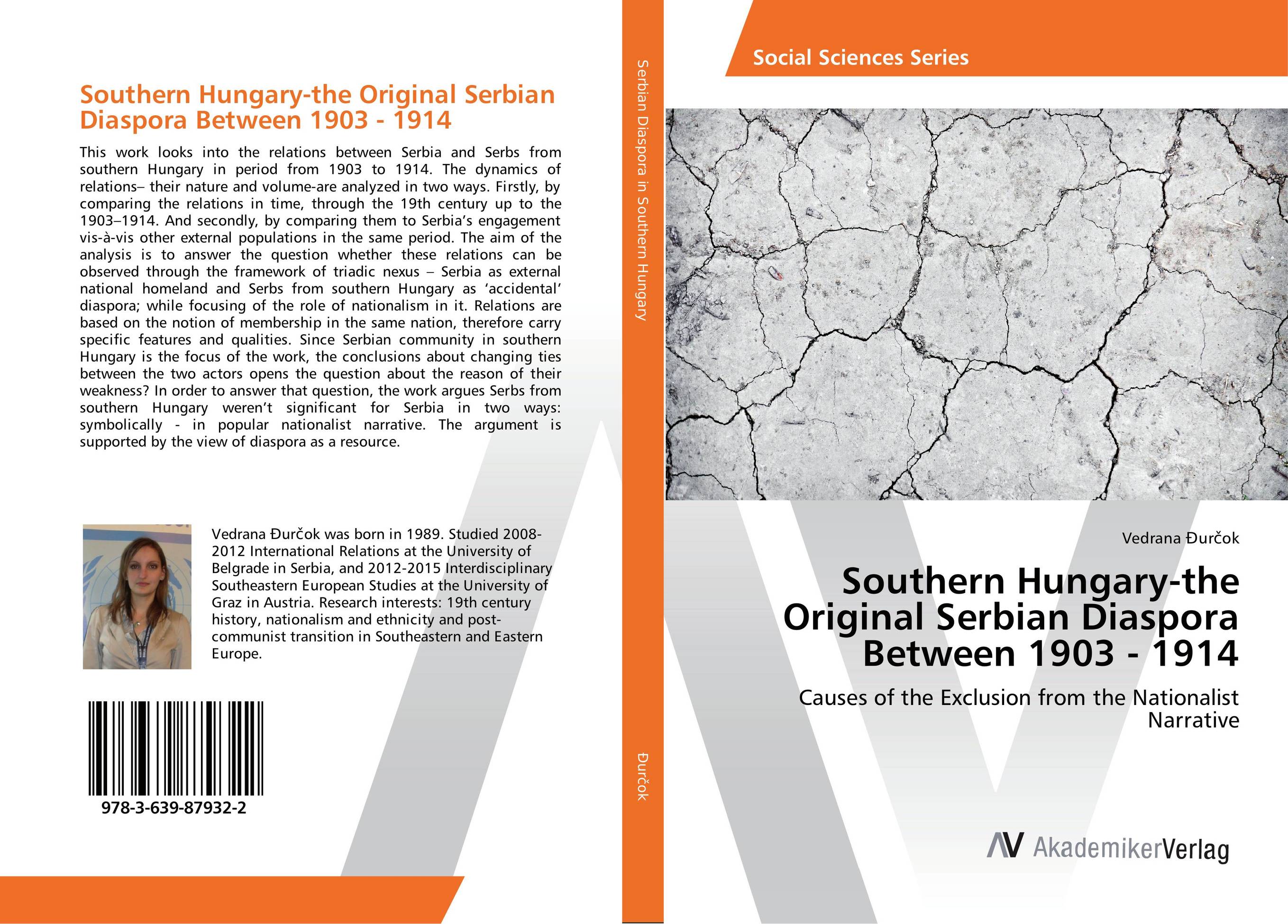| Поиск по каталогу |
|
(строгое соответствие)
|
- Профессиональная
- Научно-популярная
- Художественная
- Публицистика
- Детская
- Искусство
- Хобби, семья, дом
- Спорт
- Путеводители
- Блокноты, тетради, открытки
Southern Hungary-the Original Serbian Diaspora Between 1903 - 1914. Causes of the Exclusion from the Nationalist Narrative

В наличии
| Местонахождение: Алматы | Состояние экземпляра: новый |

Бумажная
версия
версия
Автор: Vedrana ?ur?ok
ISBN: 9783639879322
Год издания: 2016
Формат книги: 60×90/16 (145×215 мм)
Количество страниц: 176
Издательство: AV Akademikerverlag
Цена: 33137 тг
Положить в корзину
| Способы доставки в город Алматы * комплектация (срок до отгрузки) не более 2 рабочих дней |
| Самовывоз из города Алматы (пункты самовывоза партнёра CDEK) |
| Курьерская доставка CDEK из города Москва |
| Доставка Почтой России из города Москва |
Аннотация: This work looks into the relations between Serbia and Serbs from southern Hungary in period from 1903 to 1914. The dynamics of relations– their nature and volume-are analyzed in two ways. Firstly, by comparing the relations in time, through the 19th century up to the 1903–1914. And secondly, by comparing them to Serbia’s engagement vis-?-vis other external populations in the same period. The aim of the analysis is to answer the question whether these relations can be observed through the framework of triadic nexus – Serbia as external national homeland and Serbs from southern Hungary as ‘accidental’ diaspora; while focusing of the role of nationalism in it. Relations are based on the notion of membership in the same nation, therefore carry specific features and qualities. Since Serbian community in southern Hungary is the focus of the work, the conclusions about changing ties between the two actors opens the question about the reason of their weakness? In order to answer that question, the work argues Serbs from southern Hungary weren’t significant for Serbia in two ways: symbolically - in popular nationalist narrative. The argument is supported by the view of diaspora as a resource.
Ключевые слова: diaspora, Ethnizit?t, Nationalismus, ?sterreich-Ungarn, Serbien, S?dosteuropa, Anfang des 20. Jahrhunderts, Ethnicity, Nationalism, Austro-Hungary, Serbia, Southeastern Europe, early 20th century



